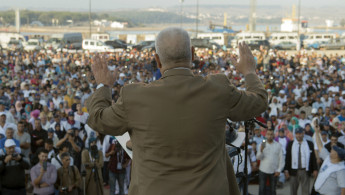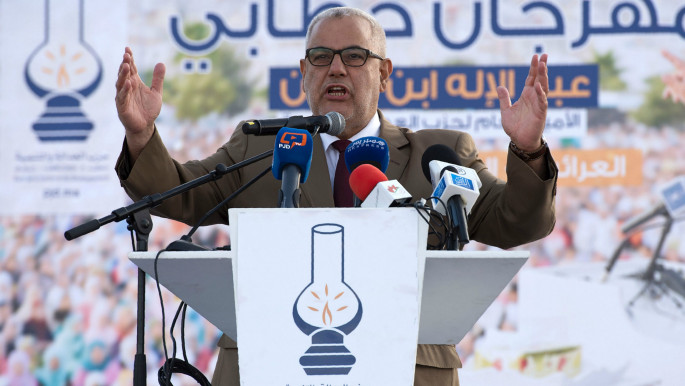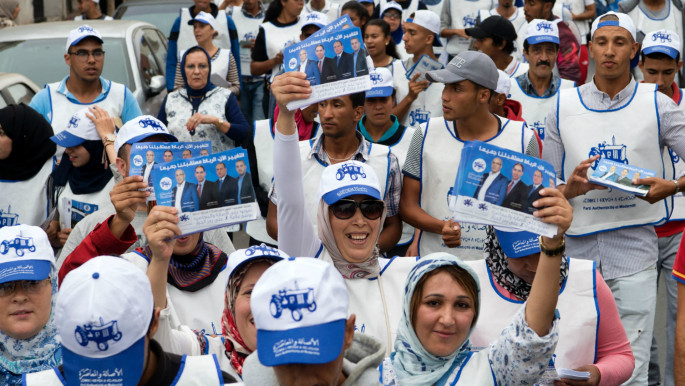Morocco's parliamentary elections and the ruling Islamist party
Around 16 million people of the country's 34 million population are registered to take part.
They will vote for candidates from 30 parties to fill the 395-member Chamber of Representative.
The contest between the ruling Islamist Justice and Development Party [PJD] and the opposition Authenticity and Modernity Party [PAM] is expected to be a heated one.
The PJD came to power in 2011, after swelling protests prompted concessions from King Mohammed VI, the scion of a monarchy that has ruled Morocco for 350 years.
A new constitution reduced some - though by no means all - of the king's near-absolute powers as autocratic regimes fell in Tunisia, Egypt and Libya.
Heading a coalition that includes communists, liberals and conservatives, the PJD retains considerable support among the urban middle classes that have largely abandoned the left in favour of Islamist parties.
Prime Minister Abdelilah Benkirane, who also heads the PJD, said a second term would allow it to continue its limited economic and social reforms.
"I want to assert that the government I headed carried out a lot of reforms on economic, social and human rights fronts," Benkirane told The New Arab.
"I am pleased with all that the government achieved during the last five years. While I cannot predict the outcome of Friday's vote, I believe that the PJD will emerge triumphantly because people can now see what we can do for the country, and what we can do for them."
But PJD has been weakened by rising unemployment and what critics say is a failure to deal with corruption.
The party has faced a string of scandals within its ranks including a major drugs bust, a dodgy land-grab deal, and the suspension of two vice presidents found in a "sexual position" on a beach.
Other contestants
The PJD also faces a resurgent liberal opposition Authenticity and Modernity Party [PAM], formed in 2008 by a close adviser to the king.
The PAM has poured enormous resources into a campaign criticising the government's record as "catastrophic" and pledging to roll back the "Islamisation" of society.
It pitches itself as the defender of women's rights and liberal social mores, and aims to bring more women into parliament, where they hold just 67 out of 395 seats.
Friday's poll also marks the return of Salafists, followers of an ultra-conservative brand of Sunni Islam, to the political arena.
There are only a few dozen Salafists among the 7,000 candidates, but their re-emergence is a notable shift in a country where they were once pariahs.
They include Abdelwahab Rafiki - also known as Abou Hafs - a former preacher who was sentenced to 30 years in prison after militant attacks in Casablanca in 2003 that left 45 people dead.
He was pardoned in 2012 and is running for Istiqlal, a nationalist party.
Rafiki is not alone. The Casablanca bombings prompted authorities to arrest some 8,000 people, many of them Salafists.
But like him, many were pardoned following the turmoil of 2011, and have since gained a foothold in Moroccan politics.
Moroccan Salafists were among the thousands who headed to Afghanistan in the 1990s to fight the Soviet Union.
Today, many have renounced violence and declared allegiance to King Mohammed VI.
"It is the classic old policy of the palace, which after sanctioning deviants, reintegrates them," Vermeren said.
The decisive clout in Morocco remains in the hands of King Mohammed VI - regardless of who is in government.
"The king is de facto the exclusive decision maker on a series of long-term and strategic matters," including foreign policy and big infrastructure projects, according to an analysis from the Carnegie Endowment for International Peace.
At the same time the monarchy can present the successful inclusion of an Islamist party "as a sign of the ongoing process of democratisation following the adoption of the 2011 constitutional amendments".
Agencies contributed to this report.





